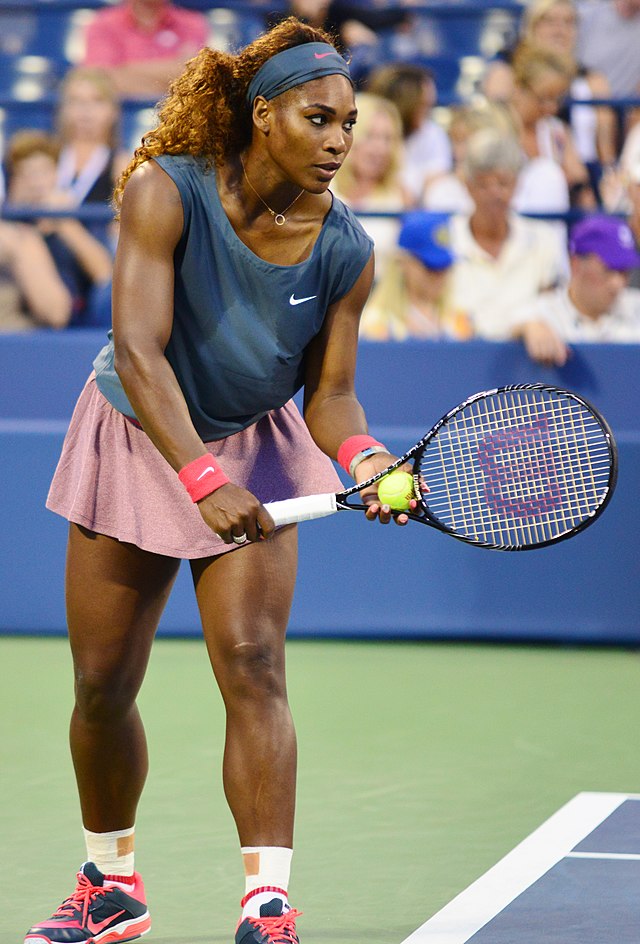
By
You know who the Black male stars in professional sports are: Lewis Hamilton is the GOAT of Formula One racing, Lebron James will get that fifth NBA championship ring eventually, and Patrick Mahomes just keeps throwing those touchdown passes for the Kansas City Chiefs. And of course Rich Paul is one of the biggest sports agents out there.
But how many Black women athletes can you name off the top of your head? How about Black women sports agents or lawyers?
That’s where the first annual National Black Women In Sports Day comes in. The new July 7 celebration hopes to educate folks on the contributions made by Black women in sports and inspire Black girls to consider a career in the broader sports industry.
“There’s a lot of organizations that highlight girls and women in sports, but there’s never been anything solely focused on Black women and Black girls. I wanted to create a day to celebrate us,” says Jaia Thomas founder of Diverse Representation, a comprehensive database of Black agents, attorneys, managers, and publicists who work in the sports and entertainment industry in the United States.
“I really want to shine a light on these other Black women, to highlight all the amazing work they’ve been doing, and to let young Black girls know that there are so many different pathways into this industry,” says Thomas. “I feel like we still don’t get enough attention and enough accolades for all of the work we’re doing and all of the ways we’re paving the way for people to come up behind us.”
Building Awareness of Behind-the-Scenes Roles
Thomas says although Black sports and entertainment managers, attorneys, and agents work behind the scenes — they deserve recognition too. And we need more Black representation in those roles.
Even though we make up 13.4% of the U.S. population, Black folks only account for 5% of lawyers, 7.5% of talent agents, 7.7% of managers, and 10.1% of publicists — all crucial roles in sports and entertainment.
“Those are the people who, at the end of the day, make the key decisions in this space,” Thomas says. “It’s the executives, the agents, the attorneys who really hold the power to make or break somebody’s career. It’s important that the people behind the scenes are just as much of a reflection as the people on screen, on the court, and on the field.”
Thomas has worked as a sports and entertainment lawyer for 16 years. She says she has always been an advocate for increasing Black representation in her industry, but it was seeing Black Panther in 2018 that ultimately pushed her to start Diverse Representation. When the movie was released, Hollywood was patting itself on the back for its great show of diversity.
However, Thomas was curious to learn about the Black reps who helped the story come to life by supporting the actors. To her surprise, no one she researched had Black representation except for Lupita Nyong’o.
“I said, ‘This is insane.’ That weekend, I came up with the name Diverse Representation and put together a database,” Thoma says.
Thomas believes that increased Black representation in the sports and entertainment industry is vital to ensuring the Black dollar stays in the Black community.
“My ultimate goal with Diverse Representation is to make sure that we are keeping our money in our communities. When I hear that someone got hired because someone found them through Diverse Representation, to me, that’s one of the biggest accomplishments of the platform,” says Thomas.
When anyone in the Black sports and entertainment industry needs to find a Black rep, here’s this free website you can go to to find someone.
JAIA THOMAS, FOUNDER OF DIVERSE REPRESENTATION
Thomas has seen some change in the sports and entertainment industry during her career, but she says we still have a long way to go to ensure that Black talent is able to be supported by Black reps that identify with the complexities of their lived experiences. In the meantime, Thomas says it is Black folks’ responsibility to take advantage of the resources already out there.
“When anyone in the Black sports and entertainment industry needs to find a Black rep, here’s this free website you can go to to find someone,” says Thomas. “No one can use the excuse of, ’Oh, I can’t find one, I don’t know where they are.’”
Meanwhile, on National Black Women In Sports Day, Diverse Representation will be launching a new website that Thomas says will serve as “an all-encompassing hub for anyone who wants to support Black women in sports.”
The website will feature podcasts that are hosted by Black women athletes and coaches, books written by Black women in sports, and nonprofit organizations that help Black women in sports.
Diverse Representation will also be spearheading a social media campaign to highlight the experiences of Black women in sports. Anyone interested in participating can search and use the hashtag #BlackWomenInSports.


